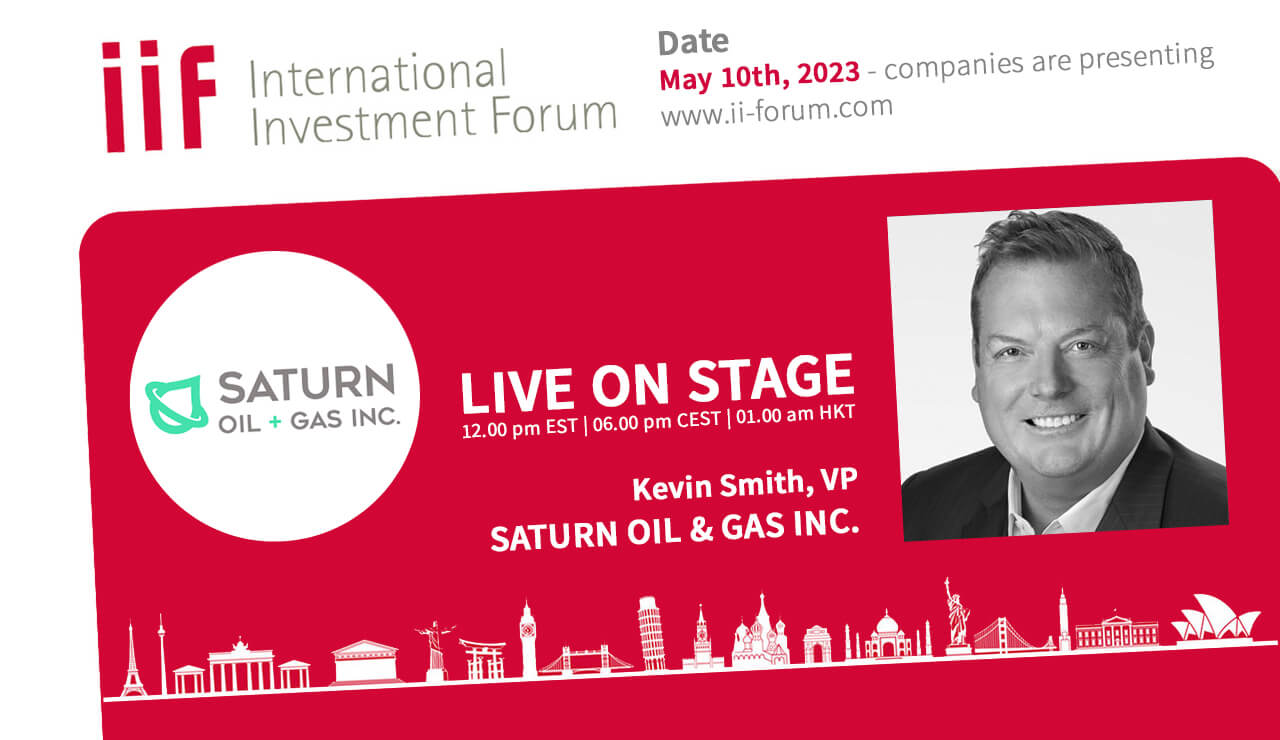April 26th, 2023 | 08:00 CEST
Hydrogen from oil and gas? How fossil fuels are to become green: ThyssenKrupp, Saturn Oil + Gas, Nordex
The Hanover Fair took place last week. Much of the event revolved around climate change and its role in industry. If you ask industrial companies today, almost all are expanding their hydrogen business. A thought experiment by the Max Planck Society now opens up a new perspective for hydrogen: new processes could make hydrogen sustainable from fossil materials. We look at what is at stake and what this could mean for the companies involved.
time to read: 3 minutes
|
Author:
Nico Popp
ISIN:
THYSSENKRUPP AG O.N. | DE0007500001 , Saturn Oil + Gas Inc. | CA80412L8832 , NORDEX SE O.N. | DE000A0D6554
Table of contents:

"[...] The Oxbow Asset now delivers a substantial free cash flow stream to internally fund our impactful drilling and workover programs. [...]" John Jeffrey, CEO, Saturn Oil + Gas Inc.
Author
Nico Popp
At home in Southern Germany, the passionate stock exchange expert has been accompanying the capital markets for about twenty years. With a soft spot for smaller companies, he is constantly on the lookout for exciting investment stories.
Tag cloud
Shares cloud
ThyssenKrupp: Wants to save more
Industrial companies like ThyssenKrupp have long recognized that their hunger for energy can become a problem. That is if there are no alternatives to gas soon. ThyssenKrupp wants to invest EUR 2 billion in climate-neutral steel production to be fit for the future. Despite the measures already implemented, ThyssenKrupp assumes that competition will remain tough and that it will have to stretch itself further to be successful. The austerity course will therefore continue. In addition to the steel business, ThyssenKrupp also produces machinery and recently bought a shipyard. The Company thus secured the option to profit from the growing defence business. In view of the existing uncertainties, the stock remains speculative. Most recently, free cash flow was negative.
Saturn Oil & Gas: Low valuation, a dividend soon?
In contrast, the cash flows of the Canadian oil producer Saturn Oil & Gas are abundant. The Company can look back on many years of growth and has transformed itself from a small producer living from hand to mouth to a major player in the Canadian district of Saskatchewan within just a few years. In the last financial year, Saturn Oil & Gas managed an average yield of 12,515 barrels per day. In the fourth quarter of 2022 alone, free cash flow was CAD 15.1 million. Thus positioned, the Company wants to pay off debt capital quickly and even consider a future dividend. An attractive dividend policy could put the stock on the radar of new investor groups - low-valued stocks with solid key data and the prospect of earnings are perfect for the portfolios of asset managers or family offices.
The entire business with oil and gas could soon regain favor with investors in the future. As the Max Planck Society indicated, producing so-called "turquoise" hydrogen could be the reason. This involves the use of so-called catalytic pyrolysis, in which methane produced during the extraction of oil and gas is split. In addition to pure hydrogen, carbon could also be produced, some of which could even contain nanomaterials that are in great demand in industry. The catalytic decomposition of methane also requires energy, but only about one-eighth of what would be needed to produce green hydrogen.
Oil and gas: Too good to burn
Although the Max Planck Society emphasizes that this technology is not yet available on an industrial scale, the aim is to outline alternative areas of application for oil and gas. The scientists are interested in showing options for using oil and gas without burning the raw materials. If this were to succeed, more fossil fuels could remain in the ground, and the prices for oil and gas could rise.
Nordex: Not a sure-fire winner
In recent years the capital market has focused on renewable energies. Examples such as that of the German wind turbine manufacturer Nordex show that the renewable energy business is by no means a sure-fire winner either. Nordex has struggled for years with small margins and complex approval procedures - especially in Germany. Added to this is the problem of storing regenerative energy, which occurs when the sun is shining, or the wind is blowing. Although there are already possibilities for storage, industry - as the current discussions at the Hanover Fair show - tends to rely on hydrogen. How green and, above all, cheap this hydrogen will ultimately be remains an open question. Fortunately, an alternative technology is already in the starting blocks in the form of so-called turquoise hydrogen.
If investors had to choose between the three shares of ThyssenKrupp, Saturn Oil & Gas and Nordex, the wind turbine manufacturer Nordex would probably have the worst cards - weak figures and the large competition are a cause for concern. ThyssenKrupp is also struggling in the face of the energy transition. However, there is hope that the market has already priced in negative developments and that there is room for surprises. Valuations in the oil and gas sector are almost at rock bottom - although fossil fuels will continue to be needed, and there are even climate-neutral application areas in the future. On May 10, Saturn Oil & Gas will present at the 7. International Investment Forum (IIF). Investors will then have the opportunity to take a closer look at the valuation and business development and to learn the background.

Conflict of interest
Pursuant to §85 of the German Securities Trading Act (WpHG), we point out that Apaton Finance GmbH as well as partners, authors or employees of Apaton Finance GmbH (hereinafter referred to as "Relevant Persons") currently hold or hold shares or other financial instruments of the aforementioned companies and speculate on their price developments. In this respect, they intend to sell or acquire shares or other financial instruments of the companies (hereinafter each referred to as a "Transaction"). Transactions may thereby influence the respective price of the shares or other financial instruments of the Company.
In this respect, there is a concrete conflict of interest in the reporting on the companies.
In addition, Apaton Finance GmbH is active in the context of the preparation and publication of the reporting in paid contractual relationships.
For this reason, there is also a concrete conflict of interest.
The above information on existing conflicts of interest applies to all types and forms of publication used by Apaton Finance GmbH for publications on companies.
Risk notice
Apaton Finance GmbH offers editors, agencies and companies the opportunity to publish commentaries, interviews, summaries, news and the like on news.financial. These contents are exclusively for the information of the readers and do not represent any call to action or recommendations, neither explicitly nor implicitly they are to be understood as an assurance of possible price developments. The contents do not replace individual expert investment advice and do not constitute an offer to sell the discussed share(s) or other financial instruments, nor an invitation to buy or sell such.
The content is expressly not a financial analysis, but a journalistic or advertising text. Readers or users who make investment decisions or carry out transactions on the basis of the information provided here do so entirely at their own risk. No contractual relationship is established between Apaton Finance GmbH and its readers or the users of its offers, as our information only refers to the company and not to the investment decision of the reader or user.
The acquisition of financial instruments involves high risks, which can lead to the total loss of the invested capital. The information published by Apaton Finance GmbH and its authors is based on careful research. Nevertheless, no liability is assumed for financial losses or a content-related guarantee for the topicality, correctness, appropriateness and completeness of the content provided here. Please also note our Terms of use.




